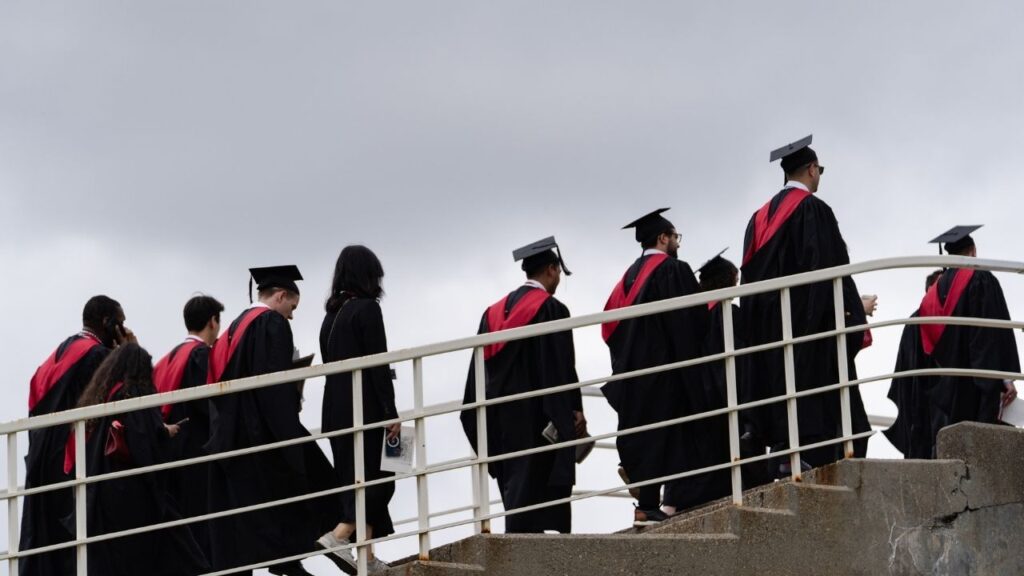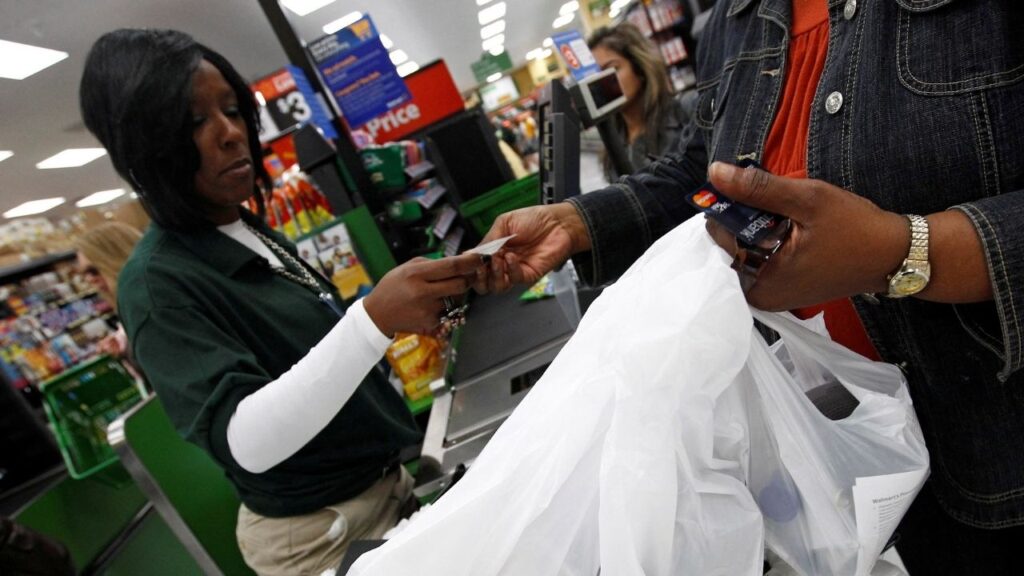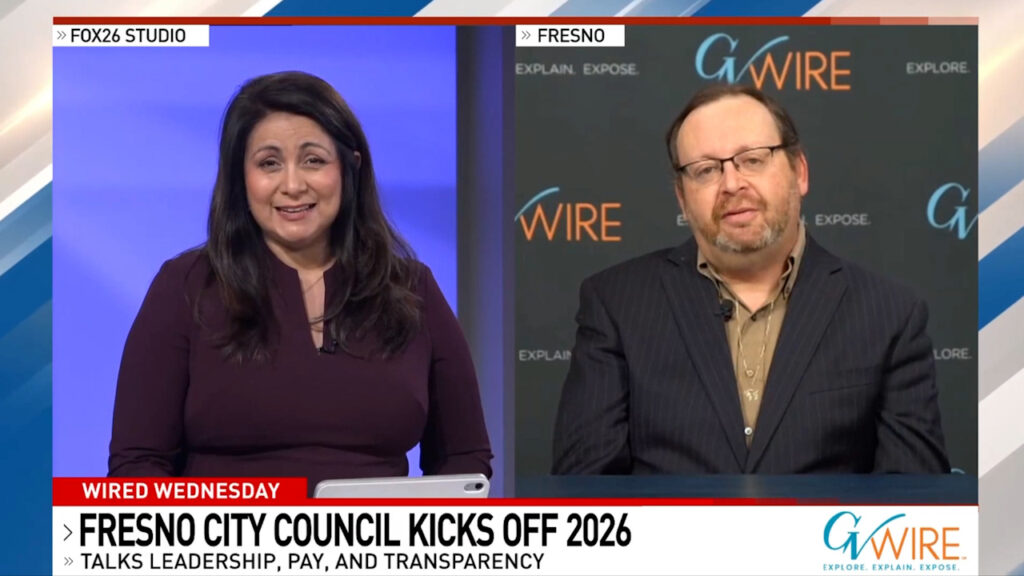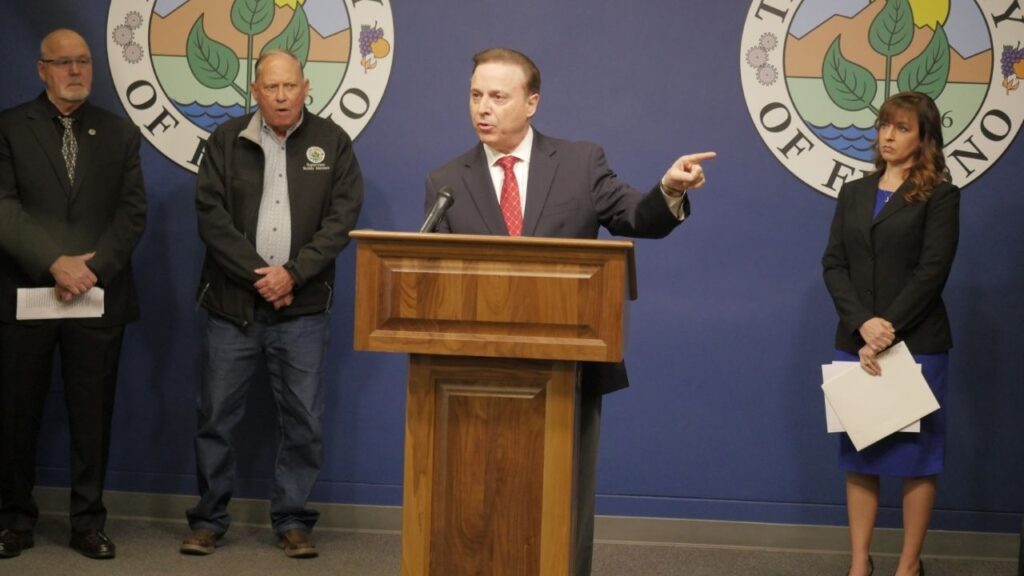Share
When the California State University system decided to conduct all of its classes online this coming fall, administrators said it was to avoid the health risks associated with COVID-19. Many other colleges are making similar decisions as they move online.

Christopher Newfield
The Conversation
Wayne State University and Michigan State University are likely to go online – but may offer a hybrid of online and in-person classes. USC will offer nearly every course in an online version. The University of Pennsylvania is offering four scenarios, three of which are mainly online. Six of Harvard’s 12 schools, including its School of Law, will be online in the fall.
While an all-online term – or nearly-all-online term – reduces COVID-19 risks to students and staff, it also will likely increase the financial risks to universities. It also can reveal preexisting financial strains, particularly at state colleges that are much more dependent than they used to be on high tuition revenues.
As a scholar of higher education, I have examined the precarious state of funding at America’s public universities and have tracked a plummeting of state funding to support them over the last 20 years. Colleges are looking at very high costs for keeping campuses open for students and staff if the pandemic continues.
But if these costs force many colleges not to open or to open in a very limited way, it may take years to recover from the financial hit. Some colleges may not recover at all.
The Cost of Opening
Cal State is a comprehensive university, catering to a highly diverse working-class and middle-class student body. Its 23-university system educates roughly 482,000 – or nearly 5% of the nation’s 10.9 million four-year college students. Most of its students are commuters. Like most large universities, Cal State offers many online courses, and a quarter of its students enroll in at least one online course in a given year. But three-quarters do not, and a move to online marks a dramatic shift away from its face-to-face learning conditions.
While trying to decide what to do, the Cal State board of trustees noted that some universities, such as Brown University, Purdue University and Notre Dame, are planning on opening and keeping faculty and students safe with testing, tracing and isolation procedures. But Cal State University system Chancellor Timothy White called that idea too costly during a May 2020 meeting with the board of trustees.
“When asked by a trustee in the meeting why that was not feasible for CSU, Chancellor White said that to test half the student body weekly would cost around $25 million per week,” one news outlet reported. “At the moment, financially, testing everyone is not in the cards,” White said at the time.
The costs for COVID-19 suppression are not entirely known but are bound to be high. These costs will need to cover personal protective equipment for all staff and students. But that is only the beginning. COVID-19 suppression also means a drastic reduction of campus occupancy, one that may well need to persist throughout 2020-21 and beyond. That is why Purdue plans to “redesign 700 classrooms and labs, and 9,500 dormitory rooms,” among many other measures. Low-tech practices, possibly like sanitizing hundreds of classrooms many times each day, will multiply the costs of custodial staff.
Weekly testing of all University of California students and employees are estimated to run $1 billion a year.
College administrators understand that closing campuses reduces health risks while creating financial ones. The biggest of these is that students will not want to pay full tuition for online college. Surveys show that student satisfaction with remote teaching this spring has been low. Parental satisfaction was also low: They rated remote course quality as 5.6 out of 10 in one survey.
Another survey found that one-third of students would transfer out of their college “if their college continued online instruction for the fall semester.” Revenues may be hit by the fact that 79% of students said they would expect lower tuition for online or hybrid courses.
Wealthy private universities like Brown and Notre Dame may have decided that the financial risks of losing students are too great, and also have the money to regularly test everyone every week and undertake similarly expensive measures.
Need for Government Help
But how can public colleges and universities get the money to cover these costs in order to open? I’ve studied the finances of another public university – the University of California, where I am employed – in detail. Over the past 20 years, state funding has dropped to about 40% of what it should be today to fully fund all of today’s students.
This means that the University of California, Cal State, and most other public universities are now dependent on stable tuition revenues for COVID-19 suppression – and it still isn’t enough.
Tuition revenue had not made up for lost public funding even in pre-COVID-19 times. Tuition’s limited financial powers will be reduced even further if colleges can’t open fully in the fall – at least this is the fear. It is – in my view – a reasonable one: Many students may indeed decide not to enroll if colleges can’t open campuses.
Only additional federal stimulus funding can solve the COVID-19 challenges that America’s public colleges and universities face. Higher education organizations initially requested $46.6 billion in COVID-19-related recovery funding. The CARES Act sent universities about $14 billion instead.
The current stimulus bill, the HEROES Act, provides an additional $32 billion for higher ed. But it may not survive the Senate. State legislatures seem to be betting on “too little too late” in the way of federal help and are planning major cuts to their higher education sectors, or are making steady budgets contingent on receiving federal money this summer.
The absence of federal stimulus funding will leave most public college without good choices.
Universities want to resume face-to-face teaching as soon as is safe because, overall, students learn more than with remote instruction, especially students of color.
To give their colleges a shot at a safe 2020-21 year, states must not cut their colleges and universities’ operating budgets. Colleges also need additional COVID-19-related cost support while there is still time to build the protocols and facilities that will allow them to open as much as COVID-19 will allow this fall.
Cal State’s half-million students deserve full college as much as the students at Brown and Notre Dame – and they need solid public funding that will allow it.
About the Author
Christopher Newfield, Distinguished Professor, University of California, Santa Barbara. This article is republished from The Conversation under a Creative Commons license. Read the original article.
RELATED TOPICS:
Categories

Fresno County Fatal Crash on Auberry Road Leads to Arrest
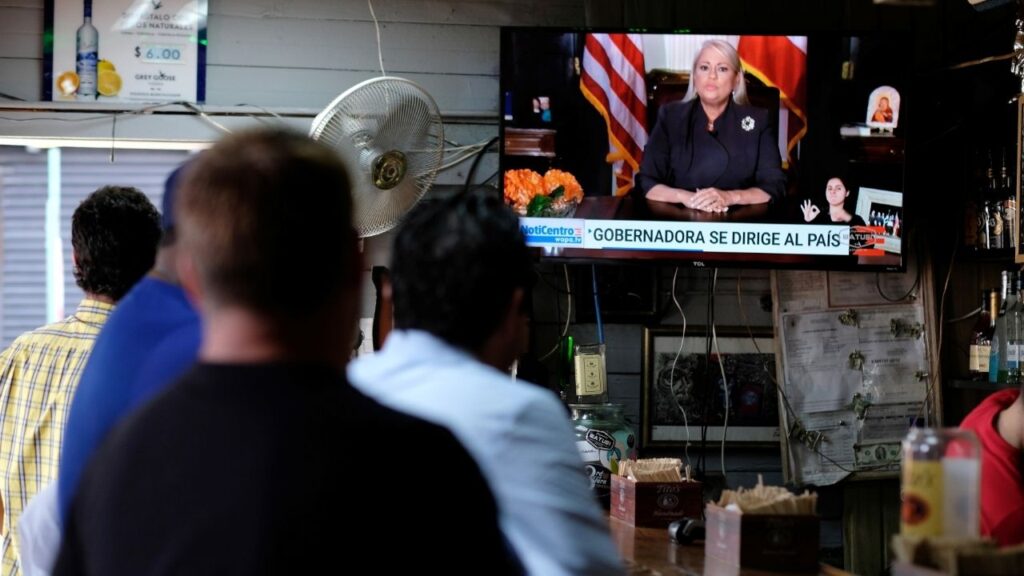
Trump Pardons Former Puerto Rico Governor Vazquez







